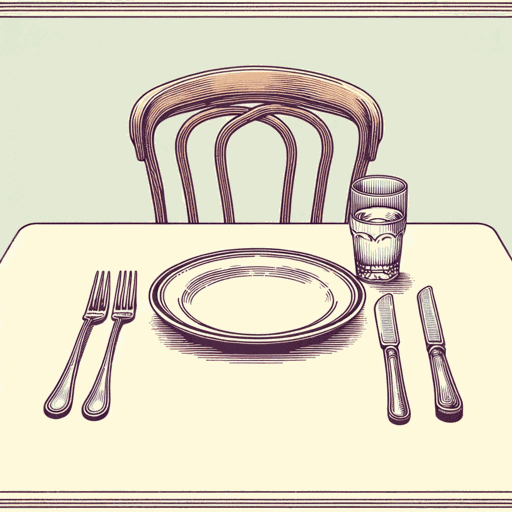50 pages • 1 hour read
Graham GreeneThe Third Man
Fiction | Novel | Adult | Published in 1949A modern alternative to SparkNotes and CliffsNotes, SuperSummary offers high-quality Study Guides with detailed chapter summaries and analysis of major themes, characters, and more.
Summary and Study Guide
Overview
English writer Graham Greene penned his novella The Third Man to work out the finer details of the plot and setting for the screenplay of Carol Reed’s 1949 film of the same name. (In writing screenplays, Greene preferred to work from source material in story format.) Although publication of the novella wasn’t originally planned, the film was such a huge commercial and critical success that the novella was published in 1950.
The film The Third Man is regarded as a cinematic classic. It mostly follows the same storyline as the book, though the protagonist, Martins (played by Joseph Cotton), is American, and his name is Holly rather than Rollo. The story’s central figure, Harry Lime (played by Orson Welles), became the basis for a dramatic UK radio series The Harry Lime Adventures (1951-52), which described the adventures of Lime (voiced by Welles) prior to the period of The Third Man.
Greene became interested in writing during his undergraduate years at Oxford, from which he graduated in 1925. His prolific literary career began in the late 1920s and continued into the 1980s. To supplement his income as a novelist, he worked as a journalist and reviewed books and films. (The Graham Greene Film Reader is a collection of his critical film commentary.) In addition, he briefly worked in British foreign intelligence, MI-6, during World War II. Greene converted to Catholicism in his 20s, and much of his fiction explores moral and political themes (especially related to the Cold War), as in The Quiet American, set in Vietnam in the 1950s. The End of the Affair and The Power and the Glory deal more directly with Catholic morality, a theme which became less prominent in his later work.
Plot Summary
The Third Man is a thriller that centers on two childhood friends who reconnect in the scarred, challenging landscape of post-World War II Vienna, then under Allied occupation following the Nazi defeat. The story’s narrator is a British police officer named Major Calloway, who is investigating the criminal activities and apparent death of Harry Lime (the central character). Calloway promises to faithfully recount the events surrounding Lime and Rollo Martins (the protagonist).
Rollo Martins, a writer of Western novels, has accepted an invitation from his childhood friend Harry Lime to join him in Vienna and write about Lime’s work with war refugees there. Upon arriving in Vienna, Martins receives tragic news: Lime has been hit by a car and killed. He attends the funeral, where he sobs openly. However, after hearing conflicting accounts of his friend’s death, he becomes suspicious of the circumstances surrounding the incident and enlists the help of Lime’s girlfriend, Anna Schmidt.
Schmidt agrees to help Martins look into Lime’s death, but only to a point: She wants to avoid drawing attention to herself because it might threaten her immigration status. A few days into the investigation, Martins gets drunk one night and arrives at Schmidt’s apartment with romantic aspirations but is disappointed to learn that she still has feelings for Lime.
Eventually, Martins discovers the truth: Lime did not die in the car accident. Instead, he faked his own death to avoid punishment for selling stolen and watered-down penicillin, which resulted in the deaths of hundreds of children. Lime has since been hiding in the city’s labyrinthine sewer system.
The story’s focus shifts from what happened to Lime to how far Martins’s loyalty to him will stretch. Martins meets Lime at a Ferris wheel. Lime announces himself with a whistled theme song he claims to have written but in fact stole from a famous composer. Lime shows no remorse for the deaths he caused or the havoc he’s wrought—and tells Martins as much. Feeling unmoored and betrayed by his friend, Martins wonders where his loyalty should lie.
After agonizing about his decision and mourning the loss of his innocence and his friendship, he agrees to act as bait in a sting operation to lure Lime into being captured. Martins arranges to meet Lime at a café. However, when Lime arrives, he sees Martins on the phone and realizes that he’s talking to the police. Knowing that he’s in a trap, Lime runs for the sewers. Martins joins the police chase. Down in the sewers, Lime shoots and kills a police officer. Martins fires a shot at Lime and mortally injures him. As Martins looms over him with a gun, Lime looks up at him and says, “Bloody fool.” Unable to bear Lime’s suffering, Martins shoots him dead. Martins doesn’t know if Lime’s last words were directed at him or Lime was calling himself a bloody fool.
The story ends as it began, with a funeral for Harry Lime. Afterward, Major Calloway gives Martins a ride out of the cemetery. When Martins sees Schmidt walking, he exits the car and waits for her on the side of the road. He and Schmidt walk together in silence.
The Third Man is steeped in the moral ambiguity of the Cold War and the immediate devastation of World War II. Greene is a sharp observer of human nature, particularly human flaws, and the narrative has few heroic moments: Calloway lies and misunderstands the conspiracy he has uncovered. Martins, for all his youthful devotion, engages in deception and other questionable behavior. Additionally, despite his attempt at heroism, he doesn’t follow through with his role in the plan for Lime’s capture; instead, he kills his friend in an act of mercy that nevertheless haunts him. He doesn’t get a satisfying ending, as in his Western stories. Neither does Calloway, who despite all his efforts makes no significant dent in organized crime. Harry Lime may be the most amoral character, given his certainty that individual lives have no value. However, the story presents him as a product of the postwar milieu, a world full of calculating cynics and opportunists. In Greene’s Vienna, the pursuit of virtue yields few tangible rewards and no emotional comfort for the grieving.
Related Titles
By Graham Greene

Brighton Rock
Graham Greene

Monsignor Quixote
Graham Greene

Our Man in Havana
Graham Greene

The Basement Room
Graham Greene

The Destructors
Graham Greene

The End Of The Affair
Graham Greene

The Heart of the Matter
Graham Greene

The Power and the Glory
Graham Greene

The Quiet American
Graham Greene

